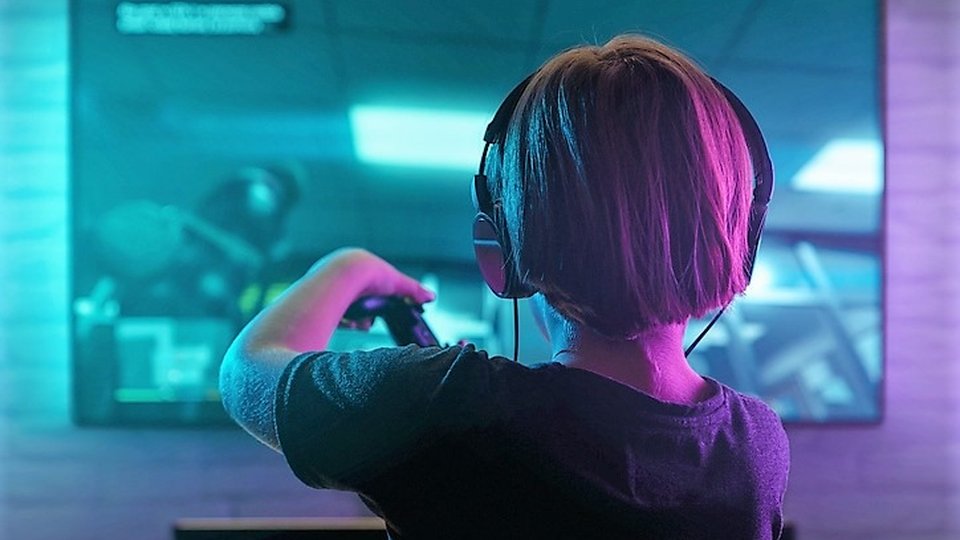Commentary
VR hardware chases expanding market demand
The VR community has progressed into a two-tier market, split between 'Casual VR' for the B2C and 'Serious VR' for B2B approaches.

August 16, 2021 by Kevin Williams
Following on from the previous coverage on the impact of VR in the evolving consumer games scene, and its appearance in the e-sports arena, the actual hardware has seen a generational update, with several manufacturers focusing on their core enterprise business to usher in new advancements in the more defined two areas of investment.
The VR community has evolved into a two-tier market, split between "Casual VR" for the B2C and "Serious VR" for B2B approaches. Meanwhile, the casual (consumer) VR sector has been getting a lot of hype, supported by Facebook's investment.
Players take the field
Pico Interactive revealed the price placement and launch dates for the standalone 'Pico Neo 3' VR headset. The company confirmed an Asian release, and a full enterprise release schedule for the platform internationally, with a terms of service for commercial deployment including location based entertainment VR with no subscription or restrictions.
DPVR, previously known as Deepoon, announced its P1 Pro 4K standalone VR system, the previous DPVR E3 being a mainstay of the Chinese VR LBE scene. All aspects use Qualcomm XR2 hardware, all with terms of service allowing commercial entertainment deployment.
Some pursue divergent paths
HTC launched two VR headsets focused squarely on the high-end B2B approach. First revealed was the new standalone VR headset, the HTC Vive Focus 3. This is a high spec system with unique features that, like all the other standalones, employed the Qualcomm XR2 chipset. However, in this case, it had been optimized and received additional cooling to improve performance. The whole design was refined with a magnesium alloy, rather than plastic, chassis for a rigidity and lightweight commercial package, including a "hot-swap" battery configuration and more ergonomic weight relief.
HTC also launched a high-end PC VR headset with the HTC Vive Pro 2. Building off the proven pedigree of the original Vive series, this latest incarnation included improved 5k visual performance, support of existing tracking and the ability to offer a great performance supporting commercial requirements. This is a strong replacement to the Vive Pro that has done stellar work in the VR arcade scene.
This move was marked with the announcement of a service support operation from HTC called Vive Business that will allow businesses and developers access to all the SDK and content needed to support their efforts in this market and create a cabal of independent software vendor partners.
HTC also partnered with iFixit to ensure the right to repair their VR hardware with faster customer support and a sustainable agenda — whereas other manufacturers have looked at excluding the ability to repair products.
Facebook keeps innovating
Facebook, for its part, announced plans for a new Oculus Quest Pro headset series that would have new sensors and eye-tracking, along with other new features. The company has been promoting "exergaming" using VR with an advertising and billboard campaign, seeing fitness apps replace traditional workout and gym activities.
The strategy, going forward for the VR company, was revealed as not looking to sell a premium device and making money off this, but in looking to sell a unique experience in a unique metaverse heavily curated by Oculus. Supported by a next generation of Quest hardware that can straddle high-end and low-end VR via extensive sensors, this demonstrates the company's goal for the next five years.
The Oculus for Business team, meanwhile, announced they would be waiving the monthly/yearly subscription fee on top of the enterprising pricing to be able to use the Quest 2 for commercial applications. This followed recent "re-drafting" of terms of service for use of the platform in commercial entertainment.
This reveals the impact of recent developments undermining their aspirations to own the ecosystem. But more developments were about to befall, as it was announced that the VP of Facebook Reality Labs partnerships for Oculus would be leaving after four years with the company.
Fumbles along the way
An inducement to re-evaluate the operation's attitude to the VR community came at the same time as the departure, as Oculus' only VR headset was removed from the Amazon Europe website.
At the same time the European Union was investigating how Oculus Quest gathered and tracked user data, Amazon delisted Quest from its website based on the findings from the European Commission Safety Gate. There were numerous reported claims of the system causing skin irritation — in particular concerning the material used in the foam interface of the face gasket.
Oculus claimed the issue had been resolved and the delisting was temporary. However, the statement revealed that this issue had been known of back in December, around the same time that the company also received complaints about a defect with the Elite head strap for the Quest.
The "serious VR" scene represented by the commercial sector was an obvious focus for the majority of the remaining VR manufacturers — with Lynx, Canon, HP, HTC, Panasonic, Pico, DPVR, 3Glasses, Pimax, VRgineers and Varjo, all with B2B offerings that do not come with strings attached.
Meanwhile, not to be outdone, the "casual VR" scene received some coverage with the news that Sony revealed more details about its planned PSVR2 system. The company revealed that the Sony platform will incorporate a 4k display, eye-tracking and haptic feedback, along with rumors of incorporating a wireless capability.
VR hardware companies are embroiled in a high stakes race.
(Editor's note: Extracts from this blog are from recent coverage in The Stinger Report, published by KWP and its director, Kevin Williams, the leading interactive out-of-home entertainment news service covering the immersive frontier and beyond.)
About Kevin Williams
Along with advisory positions with other entrants into the market he is founder and publisher of the Stinger Report, “a-must-read” e-zine for those working or investing in the amusement, attractions and entertainment industry. He is a prolific writer and provides regular news columns for main trade publications. He also travels the globe as a keynote speaker, moderator and panelist at numerous industry conferences and events. Author of “The Out-of-Home Immersive Entertainment Frontier: Expanding Interactive Boundaries in Leisure Facilities,” the only book on this aspect of the market, with the second edition scheduled for a 2023 release.
 ChatGPT
ChatGPT Grok
Grok Perplexity
Perplexity Claude
Claude






